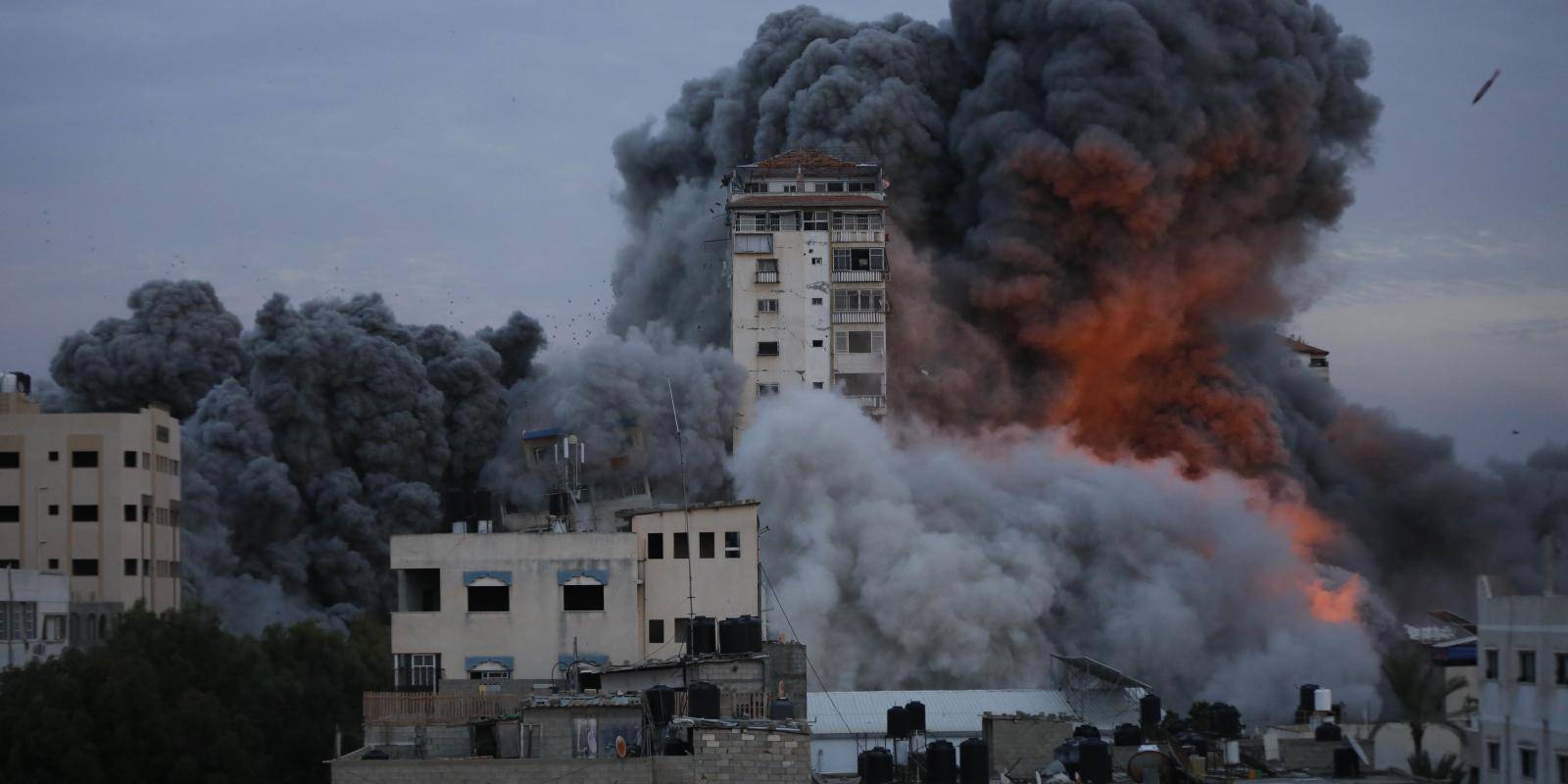Bronwen Maddox

It is impossible to overstate the sense of national shock in Israel. The barrage of missiles is one thing, but the sight of Hamas militants moving through Israeli villages shooting will be deeply disturbing to all Israeli citizens.
On Sunday Israel reported 700 had been killed in the attacks, with around 100 taken hostage. A country that famously describes itself as in a ‘tough neighbourhood’ and has poured its soul and its GDP into national defence, intelligence and the very cause of survival failed to foresee the assault or to respond quickly.
The US and other key Israel allies including the UK made immediate sweeping statements condemning Hamas. Other countries have joined in, notably India which had never before called Hamas a terrorist organization: the Modi government does not rush to associate itself with causes it thinks of as ‘Western’ but has its own concerns about terrorism.
These statements will be repeated in the emergency discussions of the UN Security Council. But that will not go far to solve a crisis that could have significant ramifications for the region and possibly for the Ukraine war.
The first question is over Israel’s response, which Prime Minister Benjamin Netanyahu has vowed will follow soon. He has portrayed himself as ‘Mr Security’, and this attack represents a real humiliation.
Yet it is hard for his government to calibrate its response. More strikes on Gaza will undoubtedly follow – the death toll already stands at more than 300, according to Palestinian reports. But the hostages – including families, children, older people and at least one soldier – will enormously complicate this response.
In 2011 Israel swapped 1027 Palestinian prisoners, responsible for 569 Israeli deaths, for one soldier, Gilad Shalit, captured by Hamas and held for five years. What would it be prepared to swap for the missing 100? That is what Hamas intends to explore.
For the moment, Israel will unite behind Netanyahu. Voices protesting his recent moves to weaken the Supreme Court will now be quiet. But there is a strong case that his deeply divisive moves, which led to an unprecedented period of protests within Israel, distracted the government and divided military forces and reservists.
One immediate effect of the attack will be to scupper the prospect of a ‘normalization’ of relations between Saudi Arabia and Israel, flickering through diplomatic chatter for months. Hamas may have been motivated to do just that.
The argument is that Iran, a longtime backer of Hamas (and Hezbollah) would not like to see its great rival Saudi Arabia strengthened by a deal with Israel, which would also, from the US point of view, counter China’s influence in the region.
For now, the talks are dead. But it would be wrong to think in any case that a deal was within easy reach. It would have been a huge prize for Saudi Arabia to hand Joe Biden before next year’s presidential campaign. And the price the kingdom demanded in return, including a civil nuclear power programme, was higher than was ever going to be comfortable for the US.
Even more important, it is hard to see how Netanyahu’s government could ever have accepted the concessions to Palestinians that Saudi Arabia demanded (although these were far from ambitious). His coalition government has vowed to expand Israeli settlements on the occupied West Bank. Some have declared all the land from the sea to the Jordan river as Israeli.
The Palestinian leadership on the West Bank had geared up to try and influence the talks, but there is little evidence it could have done so (Hamas has been trying to capitalize on the weakness of the Palestinian authority under the ageing Mahmoud Abbas, another possible motive for the assault).
It is far too early to tell whether there could be any revival of these negotiations. Thomas Friedman of the New York Times argued that Hamas’s assault might even offer an opening to the more moderate government on the West Bank.
Others argue that the assault shows the impossibility of peace without a deal between Israel and Palestinians – tempting though it is for Israel to pursue regional relationships without one. But any concessions to Palestinians of any persuasion are unlikely to be issuing from Israel anytime soon.
While this new shock to the region primarily involves the countries directly involved, it could have wider ramifications. For two weeks Republicans in the United States Congress have openly questioned the value of continuing to arm Ukraine.
The Hamas attack may give more of those in Congress reason to argue that the US should prioritize its more established and important friends.
No comments:
Post a Comment